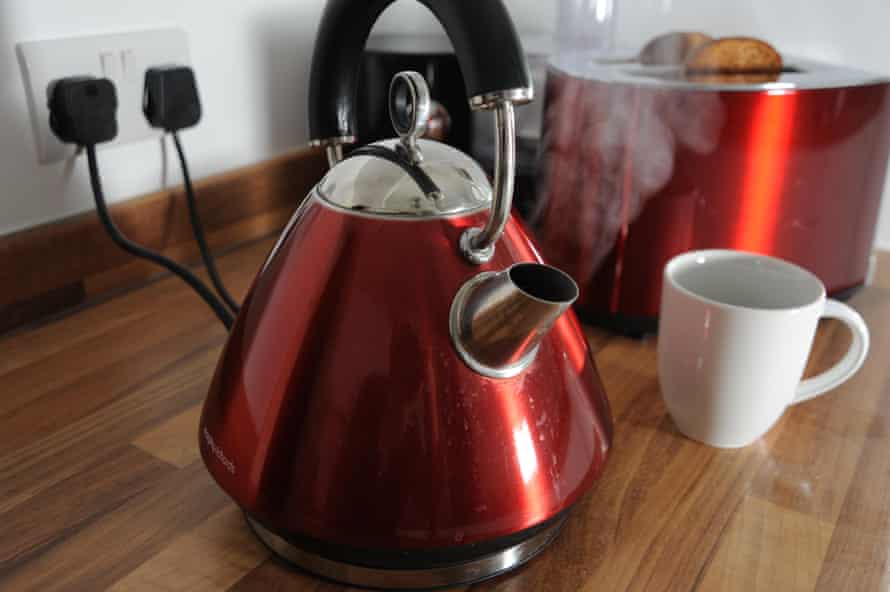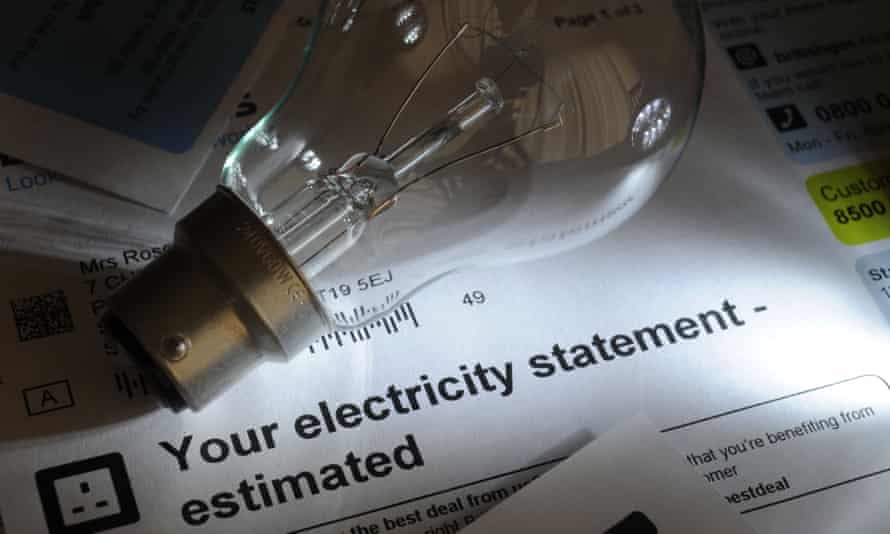Millions of people who were already having to contend with higher gas and electricity bills as a result of working from home will see their charges rise by a further £96 a year from this week, adding a total of about £1bn to bills. But by switching, you can easily save £250 a year or more.
On Thursday, households signed up to their suppliers’ standard tariff had their energy bills increase by more than 9% after the energy regulator, Ofgem, increased its cap – the highest price that suppliers can charge.
The move, which affects more than half of all households in Great Britain, adds about £96 a year to average dual-fuel bills paid by direct debit, assuming you are on a default standard tariff. Anyone choosing quarterly bills will pay about £100 more a year.
Families with higher than average energy use, and those still working at home who have seen their energy consumption jump by as much as 30%, will be hit by even bigger price increases from this week.
However, you don’t have to passively take it. Switching experts say that almost everyone affected can save at least £250 a year by moving to a better deal.
In 2019, Ofgem introduced its price cap after criticism that the energy firms were unfairly penalising customers – often elderly people – who rarely switched supplier and found themselves on their provider’s most expensive standard variable tariff.
Customers who were previously on a fixed tariff that then came to an end are similarly affected, as they will have been placed on the standard tariff by default.
Ofgem sets the maximum prices suppliers can charge – the price cap – every six months after examining wholesale gas and electricity prices and the distribution and other charges faced by suppliers.
Since the price cap’s introduction, consumers have seen four cuts in prices but two big increases. Analysis from the energy price comparison site TheEnergyShop.com shows that the changes have left standard variable tariffs £41, or 3.5%, lower than they were before the cap came into effect. Over that time, wholesale gas prices have fallen by 13%, it said this week.
Joe Malinowski, the founder of TheEnergyShop.com, says: “Energy price hikes are never welcome even at the best of times. But with many households already struggling financially from pandemic-related lockdowns, these increases are really going to hurt. The situation is made much worse, we believe, by the regulator repeatedly telling households that they are somehow being protected by the energy price cap and that the prices they pay for their energy are fair.”
The price comparison websites have queued up to say that this week’s price increase should be the thing that prompts affected customers to switch to a better deal.
Customers on standard tariffs are free to leave at any time, and there really isn’t any excuse for not switching, given that it takes about 15 minutes.
The very cheapest dual-fuel tariffs start at about £850 a year – for average consumption – compared with the new Ofgem-capped price of £1,138.
For a quote, get your annual consumption figure from your latest bill and do a comparison using one of the switching websites. We like Energyhelpline.com, TheEnergyShop.com and uSwitch.com for ease of use. Make sure you filter the results to include the plans that require you go direct, as this will show you the whole of the market, not only the firms paying commission to the switching site.

The cheapest firms at the moment – companies such as Orbit Energy, Neo Energy, Outfox The Market, and Green – are all at about the £850-£885-a-year mark for average consumption.
Igloo Energy, the company that tops the Citizens Advice service ratings, is about £955 a year. However, Outfox The Market (£878 a year) and Green (£886) get almost as good customer service scores and both offer 100% renewable electricity, which is likely to be a big draw for many Guardian readers.
Note all those prices are for variable tariffs, which means that the price could go up during the year. If you want to fix your prices for the year, we would go with Green’s Pauli tariff, which was this week priced at £938 a year. Unlike some other suppliers, Green will not hassle you every week to have a smart meter installed.
Once you have chosen your new supplier, simply log on to their website and sign up. You do not need to contact your existing provider.
Guy Anker from the website MoneySavingExpert.com says: “Our message is, and has always been, that if you’re on a standard tariff, don’t just sit back and accept the rip-off. With many of us still spending more time at home and using more energy as a result, it makes our call even more pertinent.”
Switching is easy, even in a pandemic, he says. “No one needs to visit your home (unless you want a smart meter) and you won’t be left without gas or electricity. All that changes is the price and which firm bills you for your energy. It’s that straightforward.”
How the energy suppliers measure up

Citizens Advice has helpfully just published its latest customer service ratings, giving a good guide to the best energy suppliers – and the ones to maybe avoid.
Customer service levels at some energy firms have been very poor over the past year or so, so it is worth checking the data before you switch. Citizens Advice’s latest star ratings (covering customer service scores for October to December 2020) show Igloo Energy, M&S Energy, Outfox The Market, Octopus Energy and Co-operative Energy were the top performers. Green, goto.energy and EDF also scored well.
At the other end of the table, Orbit Energy, Symbio Energy, Utilita Energy, PFP Energy and Enstroga were the poorest performers. E.ON and Utility Point also scored badly.
This content first appear on the guardian
